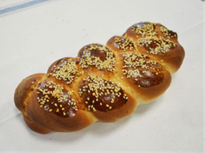International Holocaust Remembrance Day: January 27, 2021
The United Nations General Assembly designated January 27th — the anniversary of the liberation of Auschwitz-Birkenau — as International Holocaust Remembrance Day. International Holocaust Remembrance Day takes place to remember the six million Jews murdered during the Holocaust. The Jewish people had done nothing wrong and were targeted simply because they were Jewish. The Nazis rounded these people up and put them in prisons called concentration camps and killed them, because they believed they were inferior human beings and wanted to get rid of them. Nearly seven out of every 10 Jews living in Europe at the time were killed. The Nazis also killed millions of other people just because of who they were. For example, Roma gypsies, disabled people and gay people were also targeted.
Remembrance + Education
The United Nations’ theme guiding Holocaust remembrance and education in 2021 is “Facing the Aftermath: Recovery and Reconstitution after the Holocaust.” It focuses on the measures taken in the immediate aftermath of the Holocaust to begin the process of recovery and reconstitution of individuals, community and systems of justice. Integral to the process of reconstitution was the accurate recording of the historical account of what happened before and during the Holocaust. Challenging the denial and distortion of the historical events was interwoven in the processes of recovery and reconstitution. The theme examines the responses to the victims of the Holocaust, and of the survivors, addressing the needs of the contemporary world amid the historical record of the Holocaust. Against a global context of rising antisemitism and increasing levels of disinformation and hate speech, Holocaust education and remembrance is even more urgent, as is the development of a historical literacy to counter repeated attempts to deny and distort the history of the Holocaust. Increasing levels of denial, division and misinformation in today’s world mean we must remain vigilant against hatred and identity-based hostility. Rapid technological developments, a turbulent political climate and world events beyond our control can leave us feeling helpless and insignificant.
The utterly unprecedented times through which we are living currently are showing the very best of which humanity is capable but also — in some of the abuse and conspiracy theories being spread on social media — the much darker side of our world as well. We can all stand in solidarity. We can choose to be the light in the darkness in a variety of ways and places — at home, in public and online. We can remember and make sure nothing like this ever happens again. We encourage everyone to acknowledge this day and participate in some way to honor these fallen people.
Links to Activity Suggestions + Other Resources
Activity: Making Challah
One activity suggested by the Holocaust Memorial Day Trust is making Challah. Challah is a braided Jewish bread eaten on Shabbat (the Jewish Sabbath), special occasions and festivals. Cooking together is an engaging way of learning about cultures and celebrating the lives of people who were murdered during genocide. In this activity, using digital technology, your family, organization or community group can learn, cook and eat together, even while apart.
At Shabbat meals, Jews make a blessing over two loaves of bread. This commemorates the manna that fell from heaven to feed the Israelites during their wandering in the desert. A double portion of manna fell before Shabbat, ensuring that the Israelites would not need to gather manna on the day of rest.
Ingredients
4 1/2 to 5 1/2 cups all-purpose flour
2 tablespoons sugar
1 teaspoon salt
2 packages regular active dry yeast
1 cup water
1/3 cup butter or margarine
4 whole eggs
1 egg white
1 tablespoon water
Poppy seed
Steps
-
Grease large bowl and large cookie sheet with shortening; set aside. In another large bowl, stir 2 cups of the flour, the sugar, salt and yeast until well mixed. In 1-quart saucepan, heat 1 cup water and butter over medium-low heat, stirring frequently, until butter is melted, and mixture is very warm (120°F to 130°F).
- Add warm liquid and 4 whole eggs to flour mixture. Beat with electric mixer on low speed until moistened; beat on medium speed 3 minutes, scraping bowl frequently. With spoon, stir in enough remaining flour, 1 cup at a time, to make dough easy to handle.
- Place dough on lightly floured surface. Knead in 1/2 to 1 cup flour until dough is smooth and elastic, about 5 minutes. Place dough in greased bowl; turning dough to grease all sides. Cover bowl loosely with plastic wrap and cloth towel. Let rise in warm place about 35 to 45 minutes or until dough has doubled in size.
- Punch down dough several times to remove all air bubbles. Divide dough in half; roll into two 14x6-inch rectangles. Cut each rectangle lengthwise into three 14x2-inch strips. Braid strips together; tuck ends under to seal. Place crosswise on greased cookie sheet. Cover; let rise in warm place until doubled in size, about 15 to 25 minutes.
- Heat oven to 400°F. Bake 10 minutes. In small bowl, mix 1 egg white and 1 tablespoon water until well mixed. Brush over top of loaves; sprinkle with poppy seed. Bake 5 to 10 minutes longer or until loaves sound hollow when lightly tapped. Immediately remove from cookie sheet to cooling racks. Cool completely.
The Greater Des Moines Partnership calendar of events is a one-stop resource for activities taking place throughout the region. Find networking information for Greater Des Moines (DSM) businesses or events specific to Downtown DSM.
Greater Des Moines (DSM) welcomes diverse talent to the region. As one of the fastest growing business communities, inclusion and attracting diverse talent in the workplace is a key strategy of the Greater Des Moines Partnership. Learn more here.